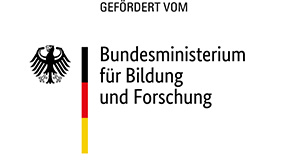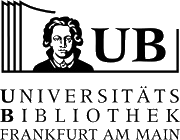Diagnostische Zugänge im inklusiven Unterricht – Ergebnisse einer schulform- und professionsübergreifenden Interviewstudie mit Lehrkräften
Diagnostic approaches in inclusive education – results of a cross-school type and cross-professional interview study with teachers
DOI:
https://doi.org/10.21248/qfi.165Schlagworte/Keywords
Inklusiver Unterricht, pädagogische Diagnostik, formatives Assessment, diagnostisches Handeln, Inclusive education, pedagogical diagnostics, formative assessment, diagnostic actionZusammenfassung
Im inklusiven Unterricht kommt einer pädagogischen Diagnostik besondere Relevanz zu, die auf formativ ausgerichtete diagnostische Zugänge setzt und die Optimierung von Lehr-Lern-Prozessen durch die Bereitstellung möglichst passgenauer Lernangebote zum Ziel hat. Mittelpunkt dieses Beitrags bilden (1) die Frage nach den diagnostischen Zugängen, die Lehrkräfte beschreiben, um im inklusiven Unterricht Erkenntnisse über Lernende zu gewinnen und (2) die Einordnung dieser im Rahmen einer pädagogischen, formativ ausgerichteten Diagnostik nach Zielsetzung und Zeitpunkt der Erkenntnisgewinnung. Der Beitrag basiert auf einer Interviewstudie, in welcher vier Sonderpädagog:innen und fünf Fachlehrkräfte zu diagnostischen Zugängen im inklusiven Unterricht befragt wurden. Die Interviewauswertung erfolgte mittels Qualitativer Inhaltsanalyse. Die Ergebnisse weisen darauf hin, dass Lehrkräfte zur Diagnostik schulform- und professionsübergreifend häufig individualisierenden Unterricht, implizit auch lehrkraftgelenkte Phasen nutzen. Zudem werden in den Interviews informelle Methoden und die Schüler:innen-Lehrkraft-Beziehung als diagnostisch bedeutsam eingeschätzt. Bei der Beschreibung diagnostischer Zugänge sind formative Aspekte vorherrschend.
Abstract
In inclusive education, pedagogical diagnostics is particularly relevant, as it relies on formative diagnostic approaches and aims to optimize teaching-learning processes by providing learning opportunities that are appropriate to the learners needs. This article focuses on (1) the question of the diagnostic approaches that teachers describe in order to gain insights about learners in inclusive education and (2) the classification of these in the context of pedagogical, formative diagnostics according to the objectives and timing of diagnostics. The article is based on an interview study in which four special education teachers and five subject teachers were asked about diagnostic approaches in inclusive education. The interviews were evaluated using qualitative content analysis. The results indicate that teachers often use individualized instruction and implicitly use teacher-directed phases for diagnostics across school types and professions. In addition, informal methods and the pupil-teacher relationship are seen as diagnostically significant in the interviews. In the description of diagnostic approaches formative aspects are predominant.
Downloads
Veröffentlicht
Ausgabe
Rubrik
Lizenz
Copyright (c) 2024 Theresa Overbeck, Samira Skribbe

Dieses Werk steht unter der Lizenz Creative Commons Namensnennung - Keine Bearbeitungen 4.0 International.



